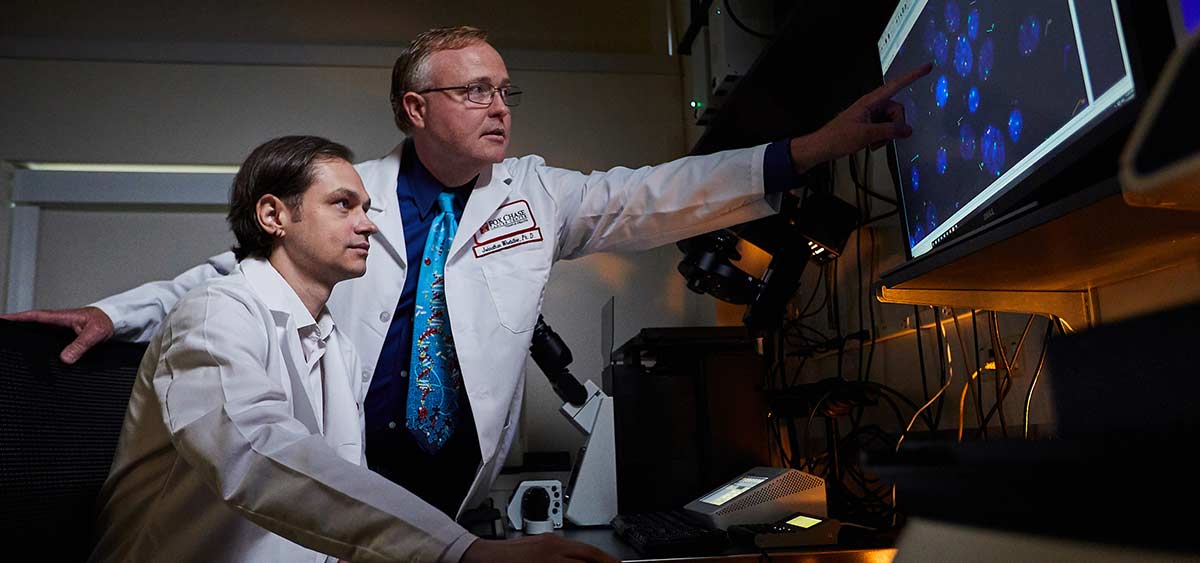
PHILADELPHIA (January 14, 2020) – Johnathan R. Whetstine, PhD, a program leader for the Cancer Epigenetics Program at Fox Chase Cancer Center, was recently awarded the American Lung Association’s Lung Cancer Discovery Award, a $100,000 grant to research epigenetic factors affecting lung cancer.
Epigenetics is the study of how DNA is modified or utilized in order to control its stability, expression, and organization without making changes to the DNA sequence. Therefore, understanding epigenetics assists in understanding what causes disease, which will lead to novel preventive and treatment strategies.
“The American Lung Association is really devoted to basic science discovery that can influence our understanding of lung cancer. I am really proud that they have continued to fund us and allow us to make these important discoveries,” said Whetstine, the Jack Schultz Chair in Basic Science.
Lung cancer is the leading cause of cancer-related deaths in the United States. Lung cancer is often difficult to treat because of the heterogeneity, or diversity, of the disease, especially in regard to DNA amplification—an increase in the number of copies of a gene—which can contribute to genome instability. This lack of stability contributes to lung-cancer associated risk and drug resistance.
The award will allow Whetstine’s lab to follow up on previous work investigating epigenetic factors that control copy number gains, which contribute to heterogeneity within lung tumors. They discovered eight enzymes that lead to localized copy gains of regions linked to drug-resistant lung cancer.
“In the context of EGFR [epidermal growth factor receptor], for example, the research will also try to understand the interplay of those epigenetic factors that influence EGFR amplification in lung cancer,” Whetstine said.
The main goal of the new research is to build a network of the regulatory input signals that are influencing heterogeneity through copy number mechanisms. “By understanding what those are in lung cancer, we can have better biomarkers and possibly identify therapeutic targets,” Whetstine said.
“The American Lung Association is honored to fund research projects that are changing the face of medicine. Whetstine’s research in epigenetics has the potential to help us uncover new approaches to treat aggressive, drug-resistant lung cancer and ultimately save more lives,” said Albert A. Rizzo, MD, FACP, chief medical officer at the American Lung Association.
Additionally, the research will hopefully identify novel drug targets for lung cancer and investigate the use of chemistry or tools to change and control copy number.
Whetstine also received the Lung Cancer Discovery Award in 2014 and 2017.